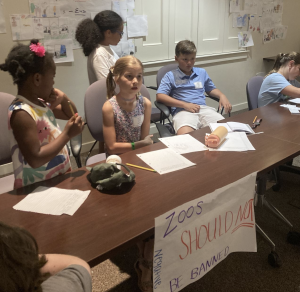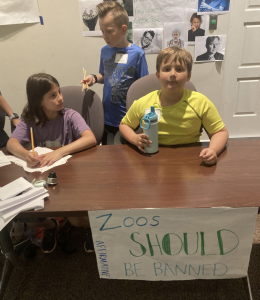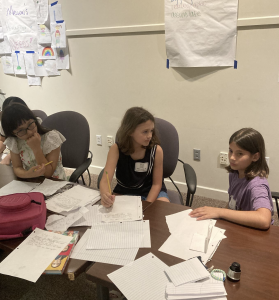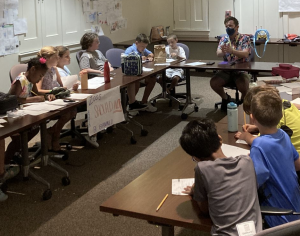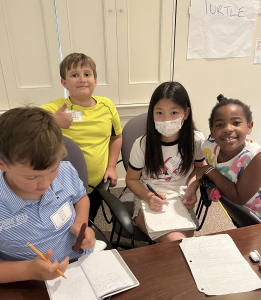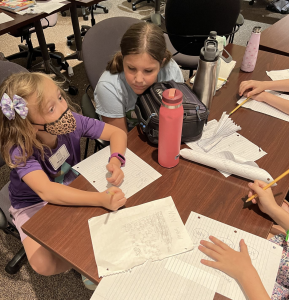Summer SAVY 2022/Session 1 – The Great Debate for Rising 3rd/4th Grade
Friday
Thursday
Students of the Great Debate:
I can’t believe we’re so near the end! Today was our penultimate session. We have tomorrow, and then… well, then our time will be in the rearview, as we head off to new adventures. Tomorrow we’ll have (at least) two debates. We’ll debate before lunch and we’ll have a second topic in the afternoon. We’ll also see your sketches; do be certain to tell your families about how you were sorted into groups and asked to construct short skits exemplifying the twelve fallacies we’ve thus far covered in class). We’ll learn a few more fallacies – if you can believe it! – and we’ll put Maslow’s Hierarchy to good use. And, of course, at the end of the day you can take with you your artwork, your sketches, and any notes you’ve collected during your debates.
But let’s not get ahead of ourselves: What a day we had today! We began with more exercises courtesy of Augusto Boal, as well as Viola Spolin (we’ll be adding her name and photo to the List of Folks You Should Know). We had two debates on the topic of homework. We unpacked the theories of Abraham Maslow. We had a lot of fun – well, I hope you did, because I had a blast.
Have a great evening. I look forward to seeing you in the morning!
Wednesday
Tuesday
Students of the Great Debate:
Thank you for our first two days! I can’t believe we’re already 40% of the way through our time together – and yet, I’m so impressed with how much content we’ve covered in so short a time.
You know that an argument is a position supported with evidence, and that a debate need not be contentious. You’re grappled with Aristotle’s theories of rhetoric and dramatic structure; you most certainly know your Beginning, Middle, and End from your ethos, pathos, and logos. We’ve discussed the importance of creating logical appeals as well as emotional appeals; on our first day, we turned to Maya Angelou, who famously said, “I’ve learned that people will forget what you said, people will forget what you did, but people will never forget how you made them feel.”
We’ve experimented with storytelling and community-building tools credited to Andre Breton, Augusto Boal, and Frida Kahlo (do be sure to tell your family about our game of Exquisite Corpse). And if you’re keeping track, the soundtrack of our prep sessions has included Miles Davis, Vince Guaraldi, and Dave Brubeck. Very chill, friends.
And…you’ve had your first debates! We’re working within a modified Team Policy Debate structure, and it is my intention that by tomorrow you’ll each have had an opportunity to argue in both the Affirmative and the Negative. We’ve debated the merits of SAVY-funded pizza, the finer points of cheetahs, and the superior nature of the color pink. Tomorrow morning, we’ll have two rounds of debate, covering the prompt, “Vanderbilt University should invest school resources in building more accessibility ramps.” I can’t wait to hear your thoughts on this important topic!
As ever, I thank you for your focus and diligence. I meant what I said today: learning is dependent upon collaboration and cooperation. You know that communication is a transactional process, and it’s a pleasure to be in the feedback flow with you!
See you in the morning,
David
